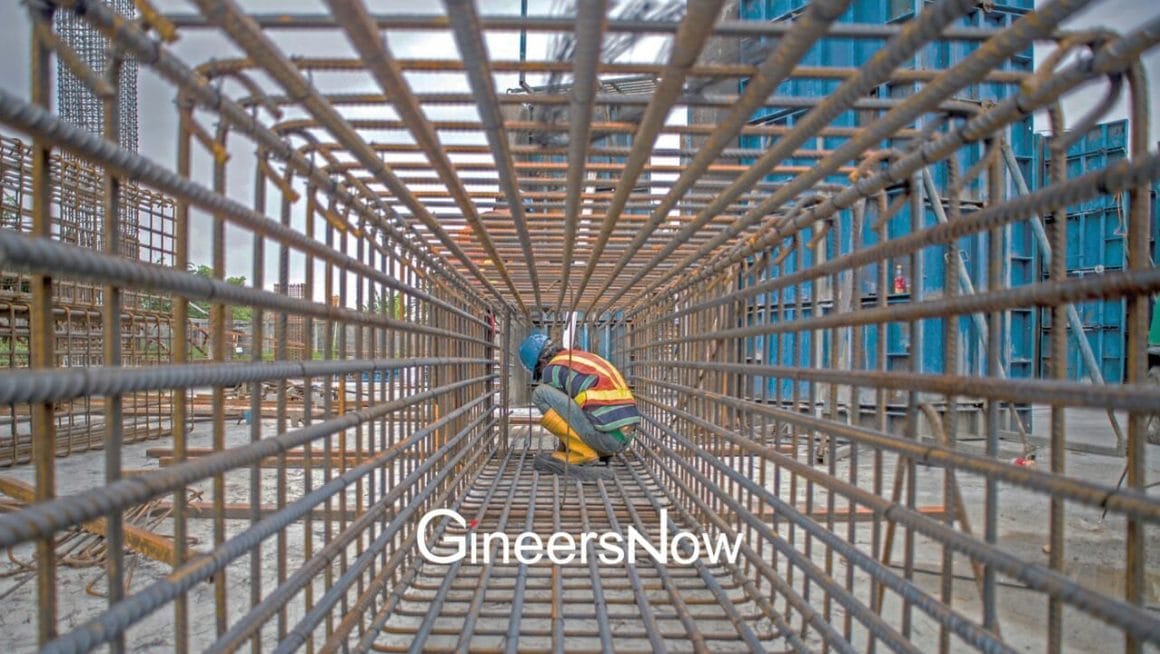A civil engineering degree in the Philippines covers a wide range of important subjects. The most important subjects include mathematics, physics, chemistry, geology, and engineering mechanics. These subjects are essential in order to understand the principles behind the design and construction of various infrastructure projects. Without a strong foundation in these subjects, it would be difficult to become a successful civil engineer. In this article, we will outline the most important technical subjects in a civil engineering degree in the Philippines.
What Are the Essential Subjects In A Civil Engineering Degree In The Philippines?
If you want to understand the entire civil engineering course in the Philippines, click here. Otherwise, if you want to know the description of each subject in BSCE, then read on!
Here are the essential technical subjects in a civil engineering degree in the Philippines.
Mathematics
The role of mathematics in civil engineering is crucial. It is one of the essential subjects in a civil engineering degree in the Philippines. Without a strong foundation in mathematics, civil engineers would be unable to design and construct the complex structures that are so essential to modern life. The ability to apply mathematical concepts to real-world problems is what sets civil engineers apart from other engineering disciplines.
A civil engineer must have a thorough understanding of geometry, trigonometry, algebra, and calculus.

Natural/Physical Sciences
Natural physical sciences in civil engineering are the study of the natural world and how it affects the built environment. It includes the study of topics such as climate, geology, hydrology, and seismology. Natural physical sciences in civil engineering are important because they help us understand the risks and hazards associated with civil engineering projects. They also help us design safer and more resilient infrastructure.
Basic Engineering Sciences
Civil engineering is one of the most important engineering disciplines. It deals with the design, construction, and maintenance of infrastructure projects such as bridges, roads, dams, and buildings. A strong foundation in basic engineering sciences is essential for all civil engineers. In this article, we will discuss the basic engineering sciences that every civil engineer should know.

Allied Courses
The allied courses in civil engineering are the ones that are necessary for a student to take in order to get their degree. They include subjects such as mathematics, physics, and chemistry. These courses prepare students for their future careers by teaching them the basics of engineering.
College Algebra
In many civil engineering programs, students are required to take college algebra. This math course is designed to help students build the skills they need to succeed in higher-level math courses, and it also helps students develop the analytical and critical thinking skills they need to be successful in their engineering career. While some students find college algebra challenging, there are many resources available to help them succeed. With a little effort and perseverance, any student can succeed in this important course.

Plane and Spherical Trigonometry
Plane and Spherical Trigonometry are two branches of mathematics that are particularly useful in the field of civil engineering course. Plane trigonometry is used in the design and analysis of structures such as bridges and buildings, while spherical trigonometry is used in the design of roads, railways and other large infrastructure projects. Both branches of trigonometry have a wide range of applications in civil engineering, and a thorough understanding of both is essential for any civil engineer.
General Chemistry
General chemistry is one of the most important courses for civil engineering students. The course covers fundamental topics such as matter and energy, thermodynamics, and chemical reactions. In addition, the course covers more specific topics related to civil engineering, such as environmental chemistry and water treatment. General chemistry is essential for students who want to pursue a career in civil engineering.

Engineering Drawing
In civil engineering, engineering drawing is used to communicate detailed information about structures and components. The drawings show the relationships between the various elements, as well as the dimensions and tolerances. Engineering drawings are essential for the construction and maintenance of infrastructure.
Advanced Algebra
A typical civil engineering curriculum includes a course in advanced algebra. This is one of the most important courses for civil engineers, as it builds on the skills learned in basic algebra and trigonometry. Advanced algebra is used to solve complex problems in engineering, such as designing structures that can withstand high winds or calculating the amount of material needed for a construction project. without a strong foundation in advanced algebra, civil engineers would be unable to do their jobs effectively.

Analytic Geometry
Analytic geometry is a branch of mathematics that deals with the problems of geometry using a coordinate system. It is used in many branches of engineering, including civil engineering. Analytic geometry is one of the essential subjects in civil engineering degrees in the Philippines, Filipino students learn about the properties of lines, curves, and surfaces in space. They also learn how to use these concepts to solve problems in engineering.
Solid Mensuration
Solid Mensuration is a branch of mathematics that deals with three-dimensional space. It is one of the most important subjects in a civil engineering degree in the Philippines, as it helps in the calculation of the volume and surface area of solids. It also helps in the determination of the shape of a solid object.

Differential Calculus
Differential calculus is a branch of mathematics that deals with the calculation of rates of change. Differential calculus is one of the essential subjects in a civil engineering degree in the Philippines. It is often used in civil engineering to help students understand how structures change over time. Differential calculus can be used to calculate the rate at which a structure expands or contracts, the rate at which it changes shape, and the rate at which its materials degrade.
Physics 2
In order to become a civil engineer, students must take a variety of courses. One of these is Physics 2. This course covers topics such as electricity, magnetism, and waves. It is important for students to understand these concepts in order to apply them to their future career.
Fundamentals and Programming
In civil engineering, the Fundamentals and Programming course is one of the most important courses that students can take. This course introduces students to the basic principles of civil engineering and teaches them how to program in the language of civil engineering. By taking this course, students will be able to better understand the concepts of civil engineering and be able to apply them in their future careers.

Integral Calculus
Integral calculus is a branch of mathematics that deals with the determination of the area under a curve. It is used in a variety of fields, including physics, engineering, and economics. In civil engineering, integral calculus is one of the essential subjects in a civil engineering degree in the Philippines. It is used to determine the strength of materials and the stability of structures. It is also used to calculate the flow of fluids and the motion of objects. Integral calculus is used to calculate the properties of materials, the strength of structures, and the flow of fluids.
Probability & Statistics
Probability and statistics play an important role in civil engineering. Probability and statistics is one of the essential subjects in a civil engineering degree in the Philippines. They can be used to help engineers design safer and more reliable structures. Probability can be used to calculate the likelihood of a failure occurring, while statistics can be used to analyze data from past failures. By understanding and using probability and statistics, engineers can help prevent future failures.

Basic Electrical Engineering
Civil engineering on basic electrical engineering would cover various aspects of electrical engineering, including its history, applications, and future. Basic electrical engineering is one of the essential subjects in a civil engineering degree in the Philippines. The course would discuss how electrical engineers work with other engineers to design and oversee the construction of electric power plants, transmission lines, lighting systems, and other electrical infrastructure projects. It would also introduce students to the principles of electricity and magnetism, circuit analysis, and electronic devices.
Differential Equations
Differential equations play an important role in civil engineering. They are used to model many physical phenomena, such as the flow of water through a pipe or the movement of a vehicle on the road. Differential equations is one of the essential subjects in a civil engineering degree in the Philippines. In this subject, Filipino students will learn how to solve differential equations and how to use them to understand and predict the behavior of real-world systems.

Statics of Rigid Bodies
In civil engineering, Filipino students will learn about the statics of rigid bodies. This includes learning how to calculate the forces that act on a rigid body in equilibrium. Statistics of rigid bodies is one of the essential subjects in a civil engineering degree in the Philippines. In addition, students will learn about the different types of loads that can be applied to a rigid body. In a statics course, students learn about the forces that act on rigid bodies at rest. This knowledge is important for understanding the behavior of structures, whether they are buildings or bridges. By understanding the principles of statics, engineers are able to design safe and stable structures.
Basic Mechanical Engineering
In civil engineering, Filipino students will learn the basics of mechanical engineering. This will include learning about the different types of materials used in construction, how to design and build structures, and how to test and evaluate these structures. Students will also learn about the principles of mechanics and thermodynamics, which are essential to understanding the behavior of materials and systems. Basic mechanical engineering is one of the important subjects in a civil engineering degree in the Philippines. With this knowledge, civil engineers can design and oversee the construction of safe and reliable infrastructure.

Surveying 1
In civil engineering, Pinoy students are taught the basics of surveying. It is one of the essential subjects in a civil engineering degree in the Philippines. This includes learning how to use a variety of surveying equipment, how to take measurements, and how to calculate distances. Students also learn about the different types of surveys that are used in civil engineering, such as topographic surveys, boundary surveys, and construction surveys. A survey is a process of collecting data about something by questioning individuals. It is a research method used to collect primary data. Surveying 1 is a civil engineering course that teaches students how to conduct surveys properly. In this course, Filipino students will learn how to select the right questions to ask, how to administer the survey, and how to analyze the results.
Engineering Economy
In civil engineering college, Filipino students learn the basic principles of the engineering economy. It is one of the essential subjects in a civil engineering degree in the Philippines. This includes understanding how to analyze and compare the costs of alternative engineering projects. Students also learn how to make decisions about which project to pursue based on economic factors. By understanding the engineering economy, students can make more informed decisions about which projects to pursue, and can better estimate the costs of those projects.

Advanced Engineering Mathematics
Advanced engineering mathematics is a field of mathematics that is used extensively by civil engineering students in the Philippines. It is a critical tool for Filipino engineers to understand and solve complex problems. This course will introduce students to the basics of advanced engineering mathematics, including topics such as differential equations, linear algebra, vector calculus, Fourier analysis, and Laplace transforms. Students will learn how to apply these mathematical tools to solve real-world problems in civil engineering.
Dynamics of Rigid Bodies
In civil engineering degree, Filipino students learn about the dynamics of rigid bodies. This includes how to calculate the forces and moments that act on a rigid body, as well as the effects of external forces on the motion of a rigid body. Additionally, students learn about the different types of loads that can act on a rigid body and how to design structures to resist these loads. Engineering dynamics is the study of how objects move and interact. Rigid bodies can be either in motion or at rest. When they are in motion, they have linear and angular velocities. When they are at rest, they have linear and angular momentum. The study of rigid body dynamics is important for understanding the behavior of structures and machines.

Mechanics of Deformable Bodies
In a civil engineering degree on the mechanics of deformable bodies, Filipino students learn about the behavior of solids under various types of loading. Mechanics of deformable bodies is one of the important subjects in a civil engineering degree in the Philippines. The course covers topics such as stress, strain, and elasticity; and introduces students to the concept of fracture mechanics. The course also covers the principles of plastic deformation, metal fatigue, beams, trusses, cables, and columns, as well as material properties and failure modes. Filipino Students who take this course will learn how to analyze and design structures to resist deformations due to loads.
Surveying 2
A civil engineering degree program would not be complete without a surveying component. Surveying 2 builds on the skills learned in Surveying 1, giving students the opportunity to further hone their skills. The course covers topics such as boundary law, topographic mapping, and GPS. With a better understanding of these concepts, students will be better prepared to enter the workforce as civil engineers.

Environmental Engineering
The field of environmental engineering is vital in today’s world. As the world becomes more industrialized, the negative effects on the environment increase. It is important to have a sound understanding of environmental principles in order to design structures and systems that will not adversely affect the environment. This is why environmental engineering is one of the critical subjects in a civil engineering degree in the Philippines.
Safety Management
Safety management is critical, and it is one of the essential subjects in a civil engineering degree in the Philippines. The goal of safety management is to protect workers, the public, and the environment from harm. There are many hazards that can occur during construction, and it is important to identify and control them. There are four main elements of safety management: hazard identification, risk assessment, risk control, and monitoring.

Engineering Management
The bachelor of science in civil engineering in the Philippines provides an overview of the principles and practices of engineering management. It covers topics such as project management, risk management, and contract law. The course is designed to give students the skills and knowledge necessary to manage engineering projects, and this is the reason why engineering management is one of the essential subjects in a civil engineering degree in the Philippines.
Structural Theory 1
In a civil engineering curriculum, Structural Theory 1 is often the first theory course that students take. The course covers the basics of structural analysis and design and introduces students to the different types of loads that structures must be designed to resist. The course also covers the different types of materials that are used in construction and how those materials affect the strength and behavior of structures.

Geotechnical Engineering 1 (Soil Mechanics)
Geotechnical engineering is the branch of civil engineering that deals with the mechanical behavior of earth materials. Soil mechanics is the study of the behavior of soils under both static and dynamic conditions. The main objectives of soil mechanics are to determine the safe bearing capacity of soils and to investigate the stability of slopes. The principles of soil mechanics are also used in the design of foundations for buildings and other structures.
Mechanics of Fluids
Fluid mechanics is the study of fluids and how they move. In a civil engineering curriculum, Pinoy students will learn about the different properties of fluids and how to apply them to real-world scenarios. Mechanics of fluids is one of the most difficult but important subjects in a civil engineering degree in the Philippines. They will also learn about the different forces that act on fluids and how to calculate them.

Building Design 1
Building Design 1 is a civil engineering topic that teaches the basics of designing and constructing buildings. Building design 1 is an introduction and one of the important subjects in a civil engineering degree in the Philippines. The course covers topics such as structural analysis, building materials, and construction methods. Students who take this course will gain a fundamental understanding of how to design and build safe, functional, and aesthetically pleasing buildings.
Highway Engineering
Highway engineering is a civil engineering topic that covers the design, construction, and maintenance of highways. Highway engineering is one of the essential subjects in a civil engineering degree in the Philippines. It covers topics such as pavement materials, drainage systems, traffic control devices, and construction methods. Highway engineering is an important part of civil engineering and is necessary for the development of our highway infrastructure.

Construction Materials & Testing
Construction materials are the materials used in the construction of buildings, roads, bridges, dams, and other infrastructure. The testing of construction materials is a critical part of the civil engineering process, as it ensures that the materials are suitable for their intended purpose. There are a variety of methods used to test construction materials, and the most appropriate method depends on the type of material being tested.
Structural Theory 2
Structural Theory 2 is a continuation of the concepts learned in Structural Theory 1. In this subject, students will learn about different types of structures and how to analyze them. This knowledge is essential for civil engineers, as they often have to design and oversee the construction of buildings and other large structures. By the end of this course, students should be able to understand and apply the principles of structural theory to real-world problems.

Structural Design 1 (Reinforced Concrete)
In a civil engineering curriculum, structural design is the process of calculating the strength and stability of structures. Reinforced concrete is a material commonly used in construction due to its high strength and durability. In this subject, students will learn about the principles of reinforced concrete design and how to apply them to real-world scenarios. This knowledge will be essential for any civil engineer looking to further their career in structural design.
Hydraulics
Hydraulics is a branch of civil engineering that deals with the flow of fluids. Hydraulics is one of the toughest topics but important subjects in a civil engineering degree in the Philippines. It is concerned with the design and construction of dams, canals, and irrigation works. Hydraulic engineers are also involved in the design and operation of water treatment plants. In a civil engineering curriculum, Filipino students will learn about the principles of hydraulics and how they are applied in the design and construction of various civil engineering projects.

Hydrology
Hydrology is the study of the movement, distribution, and quality of water on Earth and other planets, including the hydrologic cycle, water resources, and environmental watershed sustainability. A civil engineering topic on hydrology covers topics such as the properties of water, precipitation, runoff, storage, evaporation, transpiration, and groundwater. The course also covers surface water hydrology, which includes open channel flow, hydraulics, and hydrodynamics.
Building Design 2
In a BSCE curriculum, Filipino students learn the principles of designing and constructing safe and stable buildings. In Building Design 2, students apply these principles to design a building that can withstand earthquakes, high winds, and other natural disasters. Building design 2 is one of the critical subjects in a civil engineering degree in the Philippines. Through hands-on projects and classroom instruction, students gain a deeper understanding of the importance of engineering in keeping people safe.

Computer-Aided Drafting
Computer-Aided Drafting (CAD) is a technology that has revolutionized the field of civil engineering. In the past, engineers had to rely on hand-drawn sketches to communicate their designs. This was a time-consuming and often inaccurate process. With CAD, engineers can create precise drawings that can be easily shared and edited. This has made the design process much more efficient. CAD is now an essential tool for civil engineers.
Construction Method & Project Management
The construction method and project management is one of the essential subjects in a civil engineering degree in the Philippines. This subject covers the principles of construction methods and project management. The course covers the basics of construction methods, construction equipment, and materials. It also covers the basics of project management, including project planning, scheduling, and cost estimation. The course is designed for students who want to learn about construction methods and project management.

Geotechnical Engineering 2 (Foundation Engineering)
Geotechnical Engineering 2, or Foundation Engineering, is one of the essential subjects in a civil engineering degree in the Philippines. This engineering subject focuses on the design and construction of foundations. The course covers a variety of topics, including soil mechanics, soil properties, and foundation design.
Transportation Engineering
Transportation engineering is a sub-discipline of civil engineering that deals with the planning, designing, construction, operation, and maintenance of transportation facilities. These facilities include roads, highways, bridges, tunnels, airports, railways, mass transit systems, and pipelines. Transportation engineering is a key element in the development of any country as it plays a vital role in the movement of people and goods.

Structural Design 2 (Steel & Timber)
In civil engineering, Structural Design 2 (Steel and Timber) is a course that focuses on the analysis and design of steel and timber structures. The course covers the behavior of these materials under various loads, the design of structural elements, and the connection of these elements to form a complete structure. In addition, the course covers the principles of fire engineering and how they apply to the design of steel and timber structures.
Civil Engineering Project
In a bachelor of science in civil engineering college, Filipino students will learn about the various aspects of designing and constructing various types of buildings and other structures. The course will cover topics such as structural analysis, building materials, construction methods, and much more. Students will also get the opportunity to work on a real-world civil engineering project. This will give them a chance to apply what they have learned in the course and gain some valuable experience.

Water Resources Engineering
Every civil engineering student must take a course in water resources engineering. This course teaches the principles of hydraulics and hydrology and how to apply them to the design and analysis of water resources systems. Students learn how to model and simulate these systems and how to design and operate them in an efficient and sustainable way. The course is essential for any civil engineer who wants to work in the water sector.
Civil Engineering Laws, Contracts, Specification & Ethics
Laws, contracts, specifications, and ethics are an important part of civil engineering. They govern the relationships between engineers, clients, and other stakeholders. A thorough understanding of these laws and contracts is essential for any civil engineer. In every country, there are laws and contracts that must be followed in order to work as a civil engineer. In many cases, these laws and contracts are different from country to country. As a result, it is important for students of civil engineering to learn about the laws and contracts in their own country. In addition, students should also learn about the laws and contracts of other countries, as they may one day work in a country with different laws and contracts.
Civil engineering is the oldest engineering discipline after military engineering and is concerned with the design, construction, and maintenance of the physical and naturally built environment, including works like roads, bridges, canals, dams, and buildings. It is a professional engineering discipline that deals with the design, construction, and maintenance of the physical and naturally built environment.
Why is civil engineering critical to society? Civil engineers are responsible for many of the infrastructure projects that are essential to modern society.

The Role of Filipino Civil Engineers in Society Today
In a rapidly developing world, the role of civil engineer is more important than ever. They are the professionals who plan, design and oversee the construction of infrastructure projects essential to our modern way of life. This could be anything from building bridges and tunnels, to railways and sewage systems.
As society becomes increasingly reliant on technology, civil engineers must ensure that the infrastructure they create is able to cope with this demand. This means that they must have a thorough understanding of both the latest engineering techniques and how to incorporate them into their designs.
With so much responsibility resting on their shoulders, it is clear that civil engineers play a vital role in society today. Without them, we would not be able to enjoy the many benefits that come with living in a modern world.

The challenges faced by Filipino civil engineers
As the world population continues to grow, the demand for infrastructure development increases. This places a significant amount of pressure on civil engineers to not only design and build projects that are safe and efficient, but also to do so in a way that is sustainable and minimizes environmental impact.
One of the biggest challenges faced by civil engineers is designing structures that can withstand the forces of nature. In recent years, there have been an increasing number of natural disasters such as hurricanes, earthquakes, and floods. These events can cause extensive damage to buildings and other infrastructure, which can put people’s lives at risk. As a result, civil engineers must constantly be thinking about how to make their designs more resilient.
Another challenge faced by civil engineers is managing construction projects within budget constraints.

The Need for Filipino Civil Engineers: Infrastructure and Natural Disasters
As the world progresses, the need for civil engineers becomes more and more apparent. With ever-growing infrastructure and the increasing frequency of natural disasters, these professionals are essential in keeping society running.
Filipino civil engineers are responsible for the design and construction of our buildings, roads, bridges, and dams. They must take into account the effects of weather and traffic when constructing these structures, as well as any potential hazards. In the event of a natural disaster, civil engineers are often called upon to assess the damage and determine how to best repair it.
Without Filipino civil engineers, our world would be a very different place. The next time you see a towering skyscraper or cross a safe bridge, remember that a civil engineer was likely behind it.

The Skills You’ll Learn in a Civil Engineering Program
A civil engineering program can provide Filipino students with the skills they need to pursue a career in civil engineering. Students in a civil engineering program can expect to learn about various aspects of civil engineering, including planning, designing, and constructing public works projects such as bridges, roads, and dams. In addition to learning about the technical aspects of civil engineering, students in a civil engineering program will also gain important problem-solving and communication skills.

The Job Outlook for Civil Engineers in the Philippines
As the world progresses, the demand for qualified civil engineers will continue to increase. Job prospects for civil engineers are expected to be good, as the need for infrastructure development increases both in the Philippines and abroad.
The Philippines is a rapidly developing country with an ever-growing need for infrastructure. This has created a demand for civil engineers, who are responsible for the design and construction of public works projects such as bridges, roads, and buildings. The job outlook for civil engineers in the Philippines is very positive, as the government is investing heavily in infrastructure projects. Civil engineers in the Philippines can expect to earn a competitive salary and enjoy good job security.
In order to be successful in this field, Filipino civil engineers must have a strong background in math and science, as well as experience with computer-aided design (CAD) software. They must also be able to communicate effectively, both in writing and verbally.

Why Civil Engineering is a Rewarding Career
If you’re looking for a challenging and rewarding career, civil engineering is a great option. With a wide range of specialties to choose from, civil engineers can find a niche that suits their interests and skills. And with the ever-growing demand for infrastructure development, there’s no shortage of work for qualified civil engineers.
So what makes civil engineering such a rewarding career? For starters, it’s a highly creative field. Whether you’re designing bridges, tunnels or buildings, you need to be able to think outside the box to come up with innovative solutions that meet the specific needs of your project.
It’s also a very hands-on profession. Unlike many other engineering disciplines, civil engineers are often involved in all aspects of a project, from conception to completion.

Takeaway: Important Subjects In A Civil Engineering Degree in the Philippines
In conclusion, a civil engineering degree in the Philippines provides students with the opportunity to learn about important subjects such as transportation, water resources, and structures. The degree also prepares students for a career in civil engineering, which can be very rewarding.
There are many important technical subjects in a civil engineering degree in the Philippines that can provide students with in-depth knowledge about construciton, materials, and foundations. With this knowledge, Filipino civil engineering students in the Philippines can help to design and build a variety of projects, from bridges to water treatment plants.













